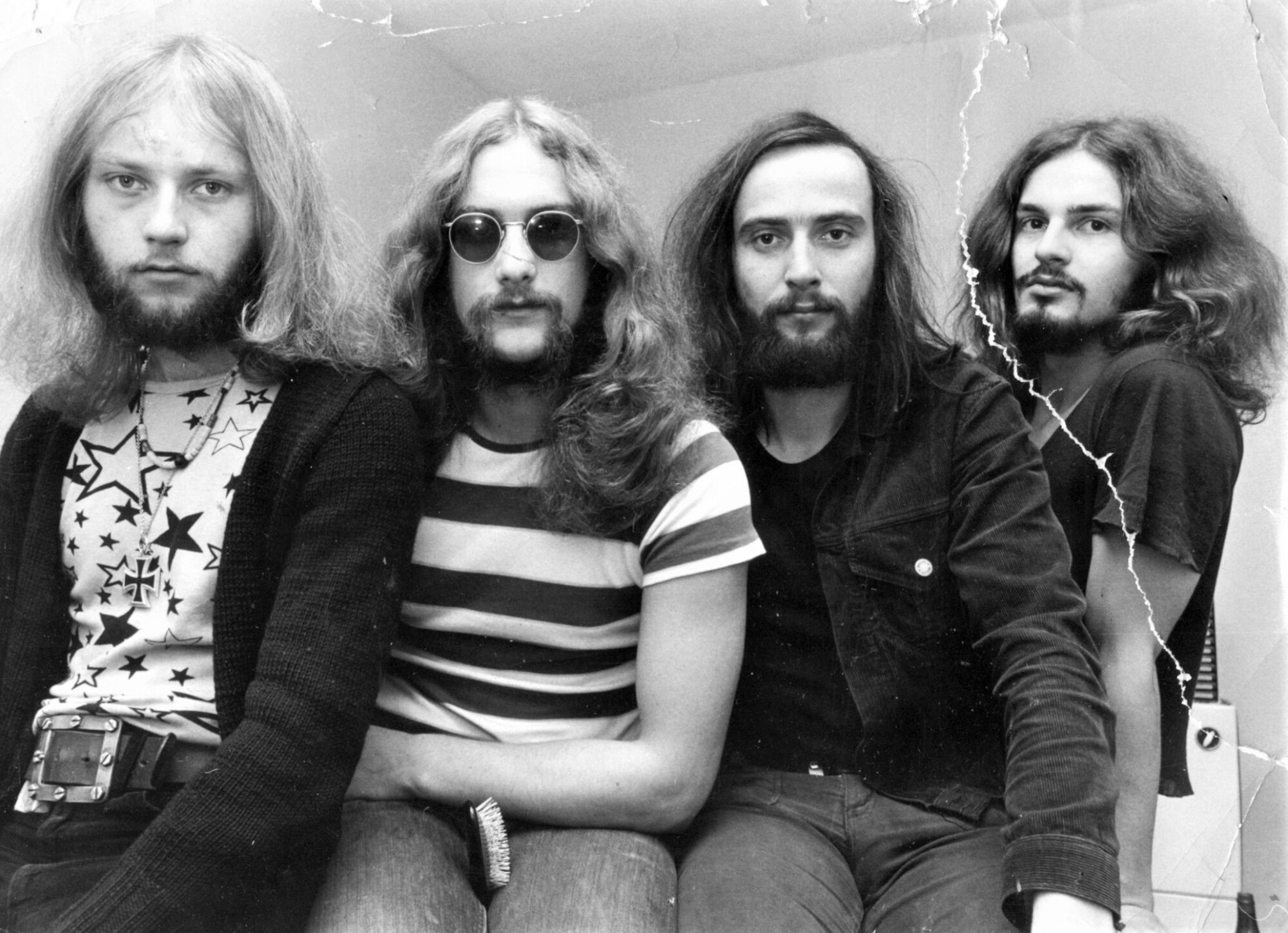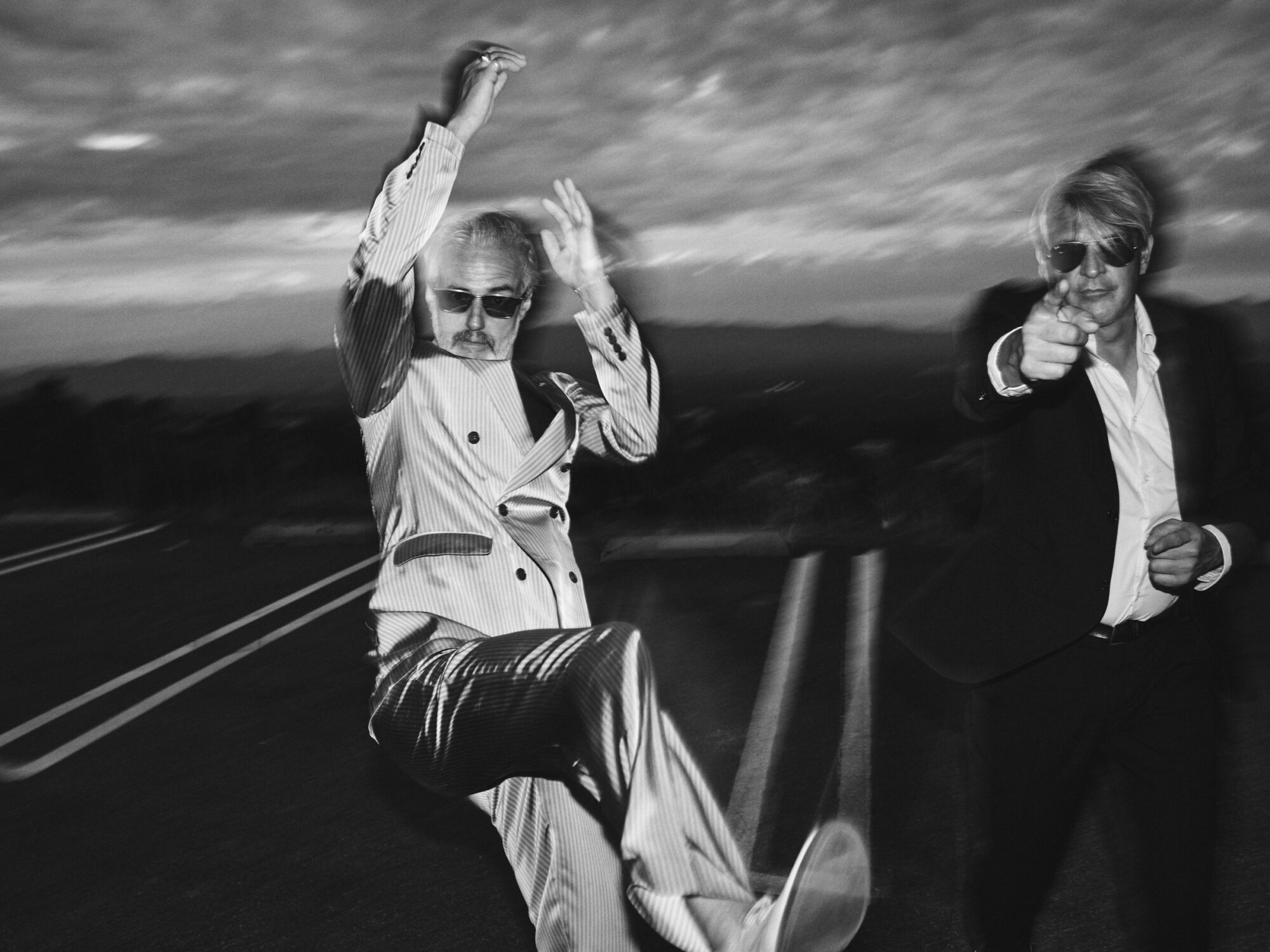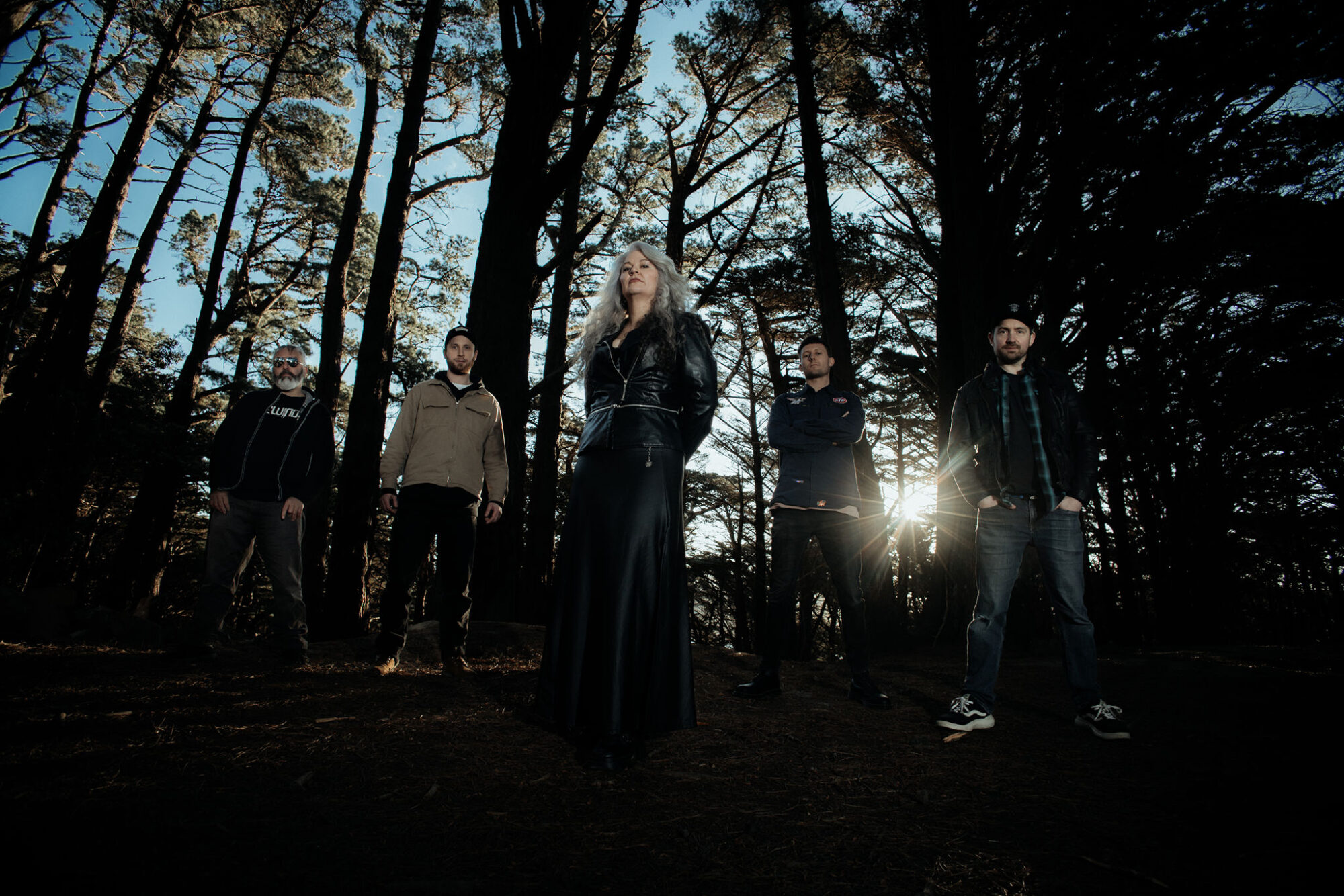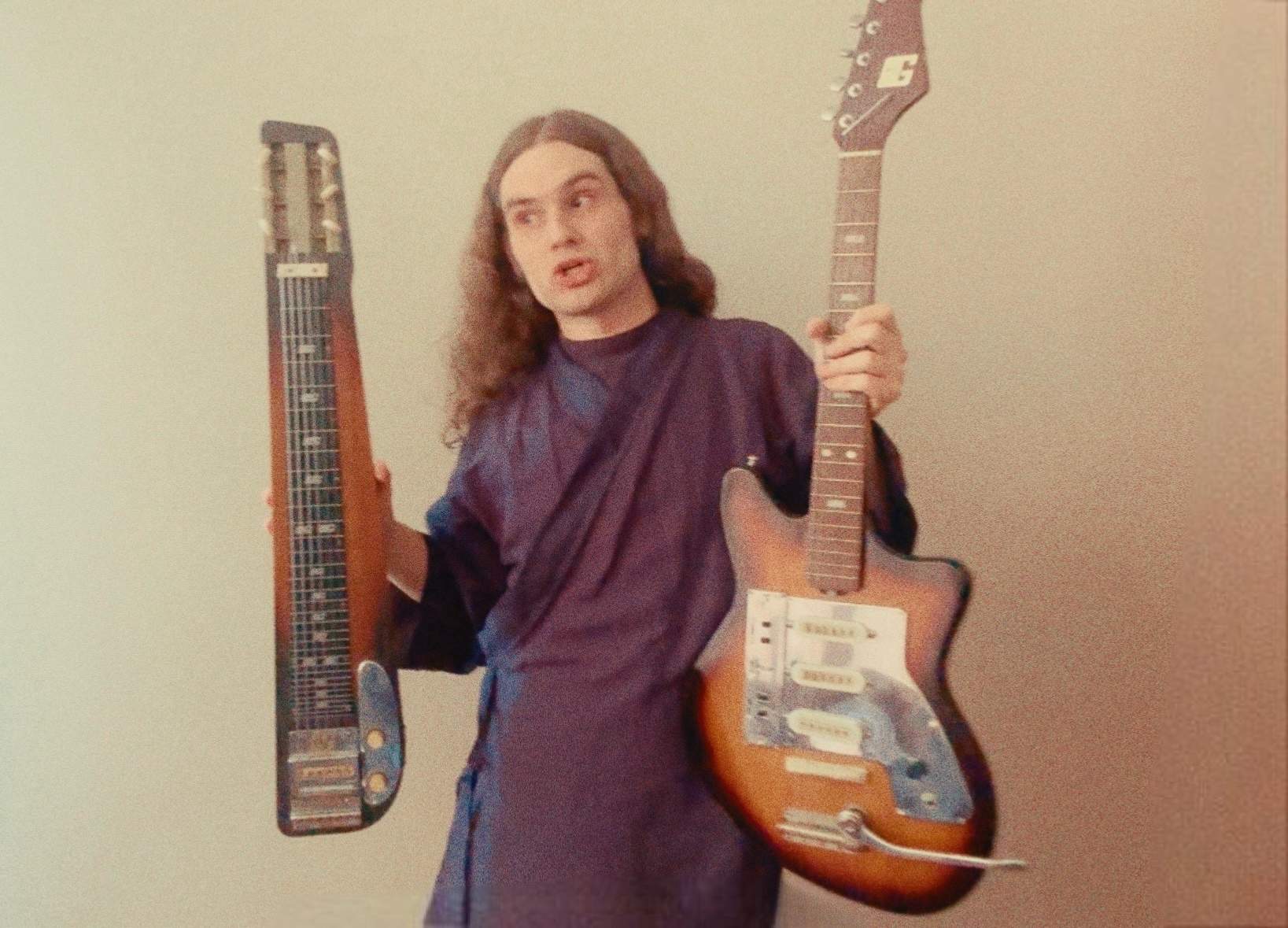Night Sun | Knut Rössler | “Music is a life elixir”
Knut Rössler, a saxophonist and a member of the German rock band Night Sun in the 1970s, played a significant role in shaping the band’s distinctive sound.
Despite their brief stint, Night Sun became known for their high-energy, incredibly loud performances and their unique fusion of rock with other genres. After the release of their only album ‘Mournin’,’ personal tragedy struck Rössler when his father passed away, leading him to shift focus away from music for a while. This ultimately led to Night Sun’s disbandment, with the band choosing not to continue without Rössler. However, Rössler later returned to the music scene, collaborating with notable musicians like Johannes Vogt and Miroslav Vitous, as well as Joachim Kühn, Thomas Heideprim, and Janusz Stefański, demonstrating his enduring passion for music and jazz.
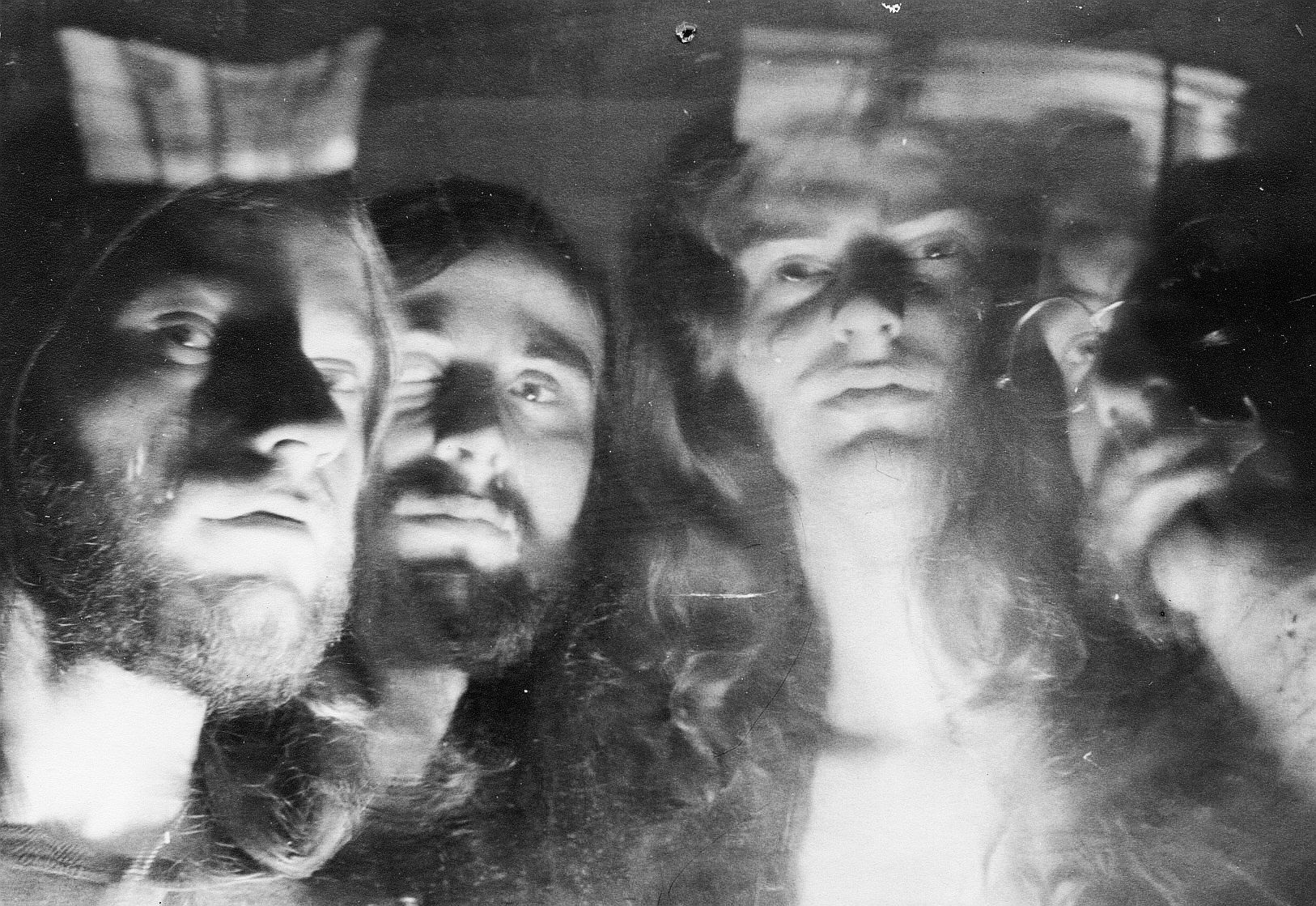
“It wasn’t the music itself but the music scene that broadened my understanding of other people”
It’s great to have you. Are you still in touch with any members of Night Sun? When was the last time you spoke with any?
Knut Rössler: First, I would like to express that I do not believe that I am of any public interest. Therefore, I will try to answer your questions about me as briefly as possible.
I still have occasional and very pleasant contact with Bruno Schaab; even after all this time, I feel personally connected to him. However, I rarely see Uli Staudt; rather, I interact with his law firm in my role as a lawyer. I haven’t seen Walter Kirchgessner since the band broke up. However, I read his interview with interest. I’m glad that he’s still very connected to music.
Where did you grow up?
I grew up in a very bourgeois and sheltered environment as the son of a lawyer in a small town near Heidelberg, in Schwetzingen. That’s where I completed my high school education and began studying law in Heidelberg.
The post-war generation was trying to move as far away from the past as possible. How would you describe the spirit of youth that formed so many Rock bands across Germany from the late 60s on?
I can’t say what “spirit” many Rock bands had, and I’m not sure if there was a common spirit in Night sun. At the time, I found that Rock music opened a wide field for encountering other people without social prejudice and gave me access to the thoughts, feelings, and opinions of others. It wasn’t the music itself but the music scene that broadened my understanding of other people. These positive experiences with people from all social classes have positively influenced my entire life.
That’s why it was important to me that the musicians of Night Sun lived together in a shared flat, worked, talked extensively every day, and were united by a common project.
When did you get your first instrument? Was there a certain moment when you knew this was it and you wanted to play it for the rest of your life?
Starting at the age of 13, I played a variety of instruments during my youth. It depended on what was needed in the music group I was part of at the time. I ended up playing guitar, bass, drums, trumpet, trombone, saxophone, and organ—whatever was required. Looking back, I have to admit that until I was 30 years old, and even during my time with Night Sun, I was a dilettante on all instruments. I had taught myself how to play the organ and never completed even a single recommended exercise. Besides Walter Kirchgessner, the rest of us in Night Sun were not particularly outstanding musicians.
It wasn’t until after I completed my second bar exam, significantly after the time with Night Sun, that I decided to seriously learn the saxophone and began practicing it daily. By now, saxophones (soprano and tenor) are my only instruments.
Tell us about some of the very early bands you were part of. What kind of music did you play?
Before Night Sun, I played Dixie, Swing, Pop, and Rock in various insignificant bands. A bit more successful were the Group of Soul, which had several Black singers, and a band called Take Five.
Please elaborate on the formation of Night Sun.
I had tried to find musicians who shared a common musical taste, and that was successful. That was all there was to it.
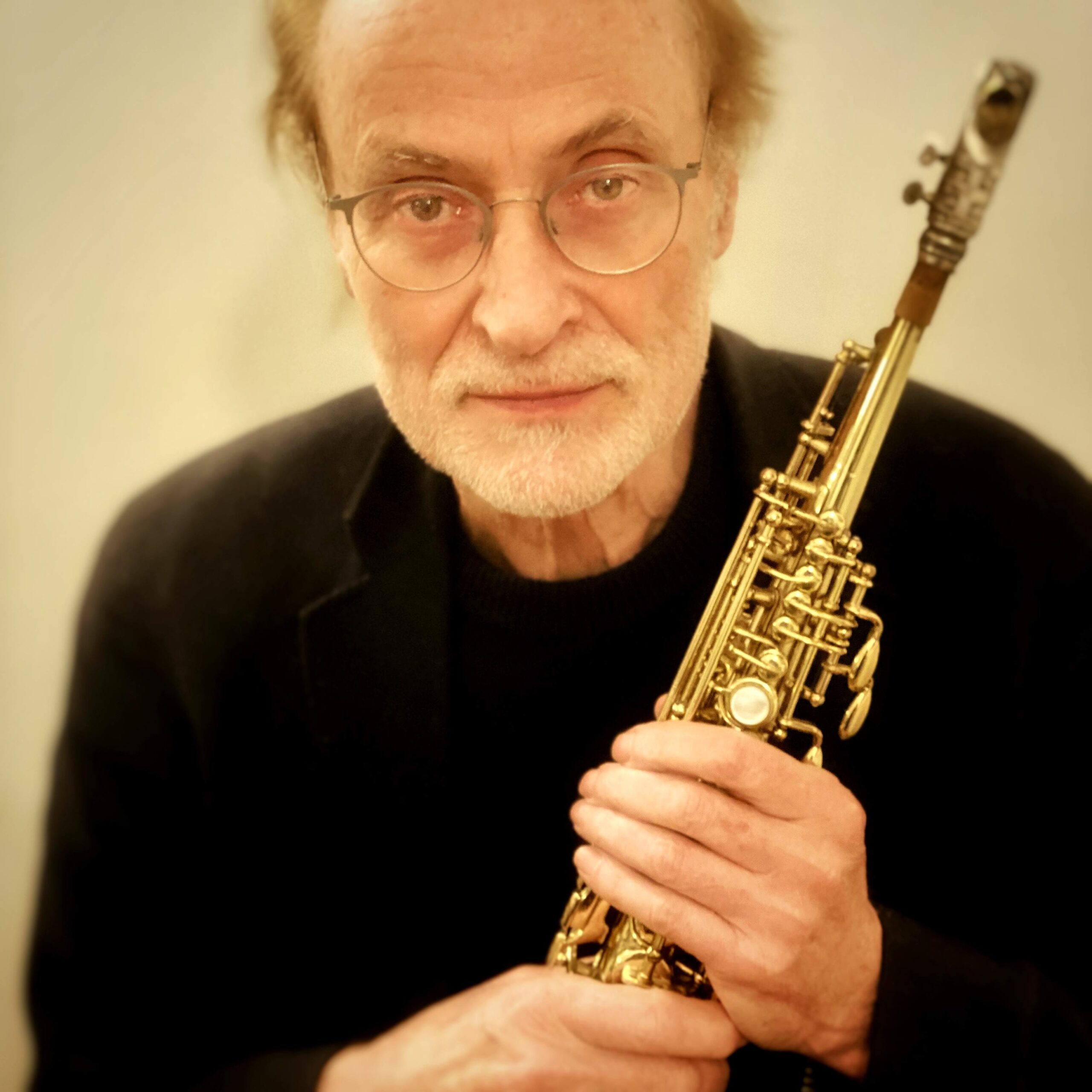
“I was impressed by the intensity and cultural diversity of rock music”
What were some of the main influences for you? Where did you get new music? Did you listen to Radio Luxembourg?
After my early experiences with jazz, I was impressed by the intensity and cultural diversity of rock music. There were countless bands that I enjoyed listening to. But of course, bands like Deep Purple and similar groups were at the center of my interests during my time with Night Sun. You couldn’t get enough inspiration from the radio. It was better to get information from the so-called “record shops” that still existed back then. You could spend hours checking out album after album.
Where was the band located? Did they do a lot of shows before you joined the band? What kind of repertoire did they play very early on?
Since the band members all lived in Heidelberg, you could call them a Heidelberg-based band. You can’t say that we did a lot of shows during our time together. From the start, we worked on putting together a repertoire of our own pieces.
Would you like to tell what kind of characters were the other guys from the band and what was the energy when you played together?
The personalities in the band were quite different. Bruno and Uli were deeply involved in the community, while Walter was more reserved. I can’t judge what the “energy” of our playing together was.
Did the band live together?
As previously mentioned, we lived together. This was an important part of the band’s concept.
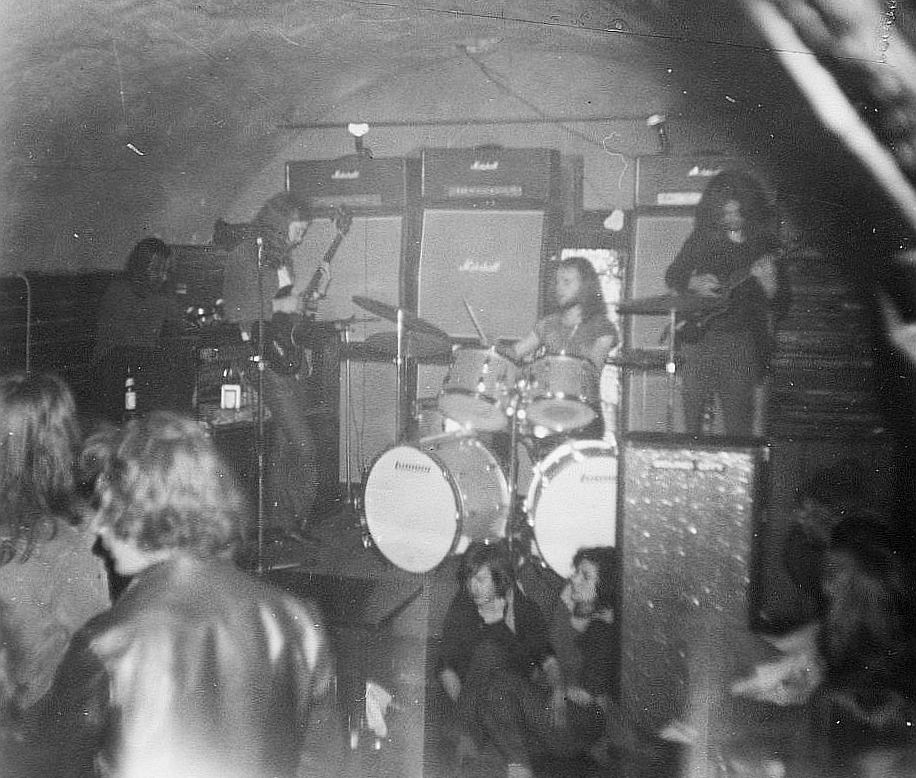
What was the scene like in the city?
I don’t think there was a rock scene in Heidelberg.
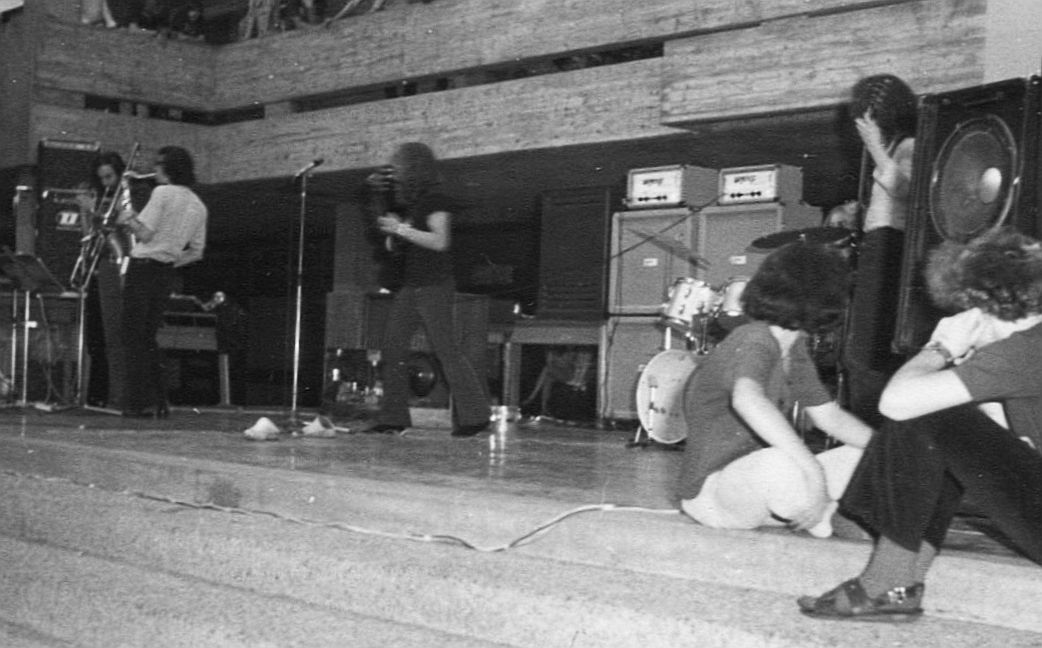
The album was recorded at Windrose Studio in Hamburg with Conny Plank. What was it like working with him?
Conny was regarded as a significant sound engineer, and there was mutual respect.
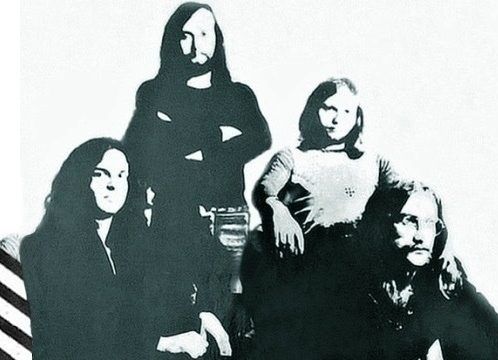
What kind of instruments, effects, pedals, and gear did you have in the band? You must have been extremely loud?
I had a Hammond C3, a Leslie, and Orange cabinets. As I mentioned, we had incredible volume.
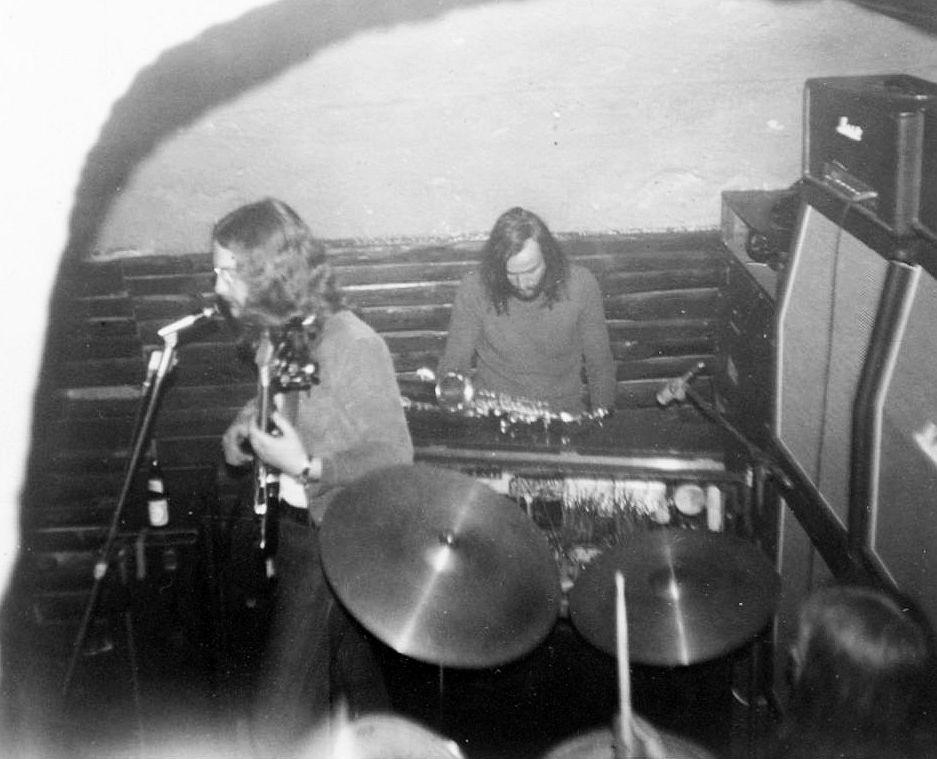
Please share some of the strongest recollections from recording ‘Mournin’?
These are personal matters.
How did you name the band Night Sun, and how did the album get its title, ‘Mournin’?
Conny Plank had suggested the name “Stalingrad,” which shows that, in the scene, it was all about generating attention.
We came up with the name Night Sun through a group discussion among band members. There was no deeper meaning to it.
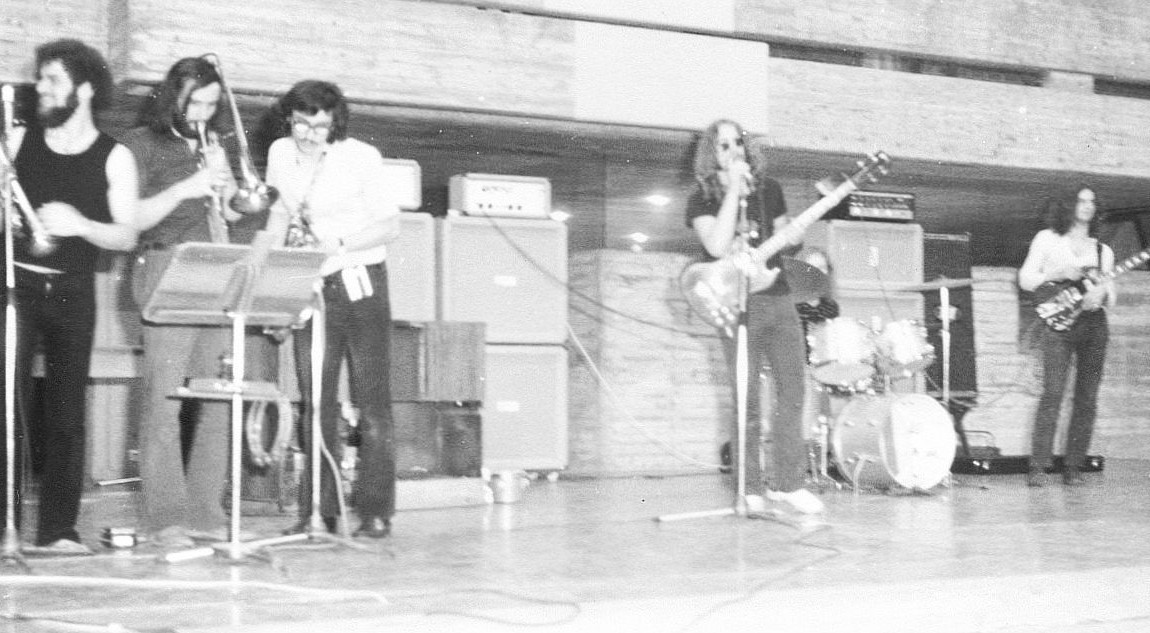
Whose idea was the cover artwork? What was the concept behind it?
This idea didn’t come from us. Whatever concept was behind it, we didn’t understand it.
I just find this cover silly.
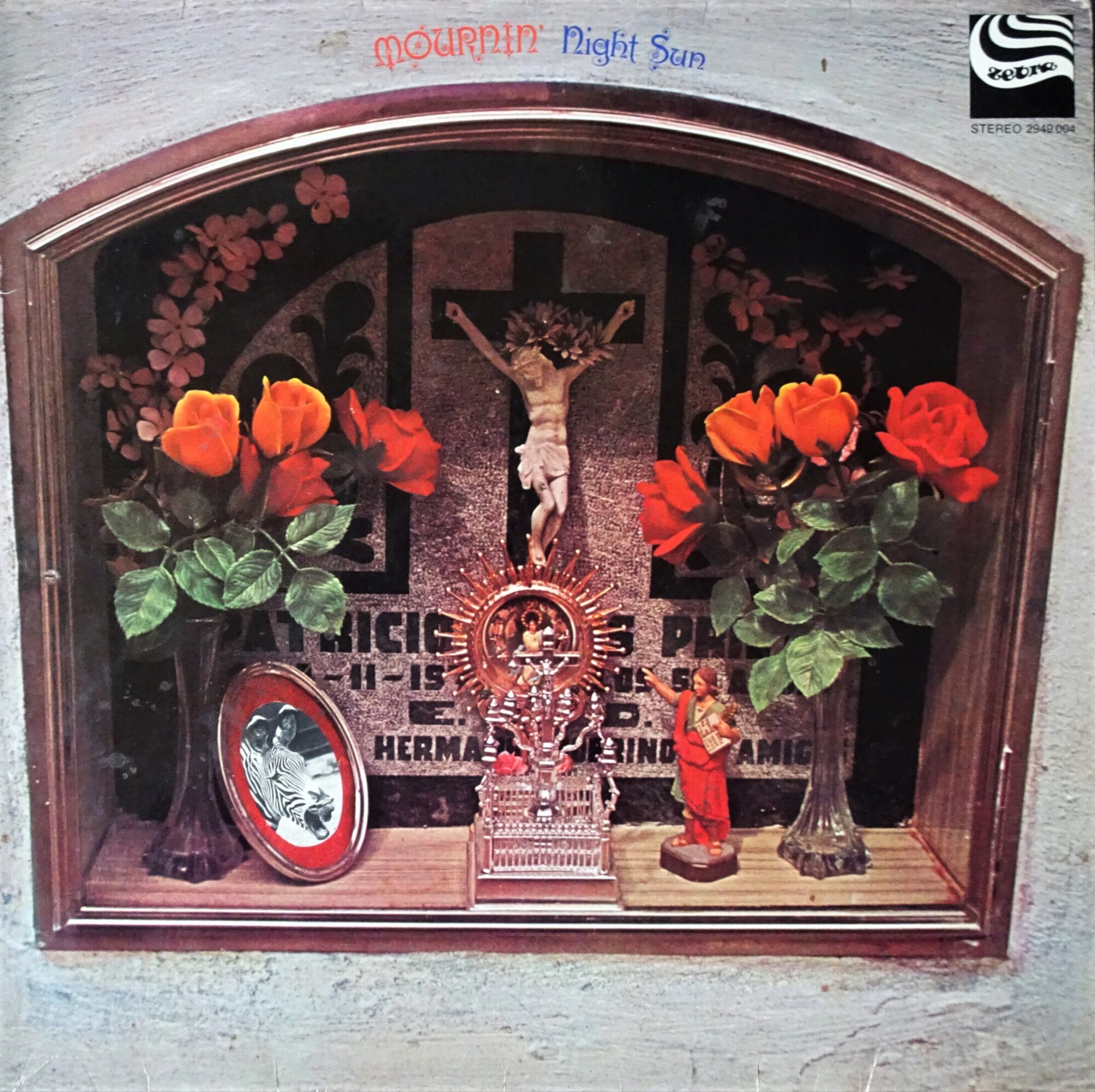
Would you share your insight on the album’s tracks?
I can’t recall anything specific about the individual tracks.
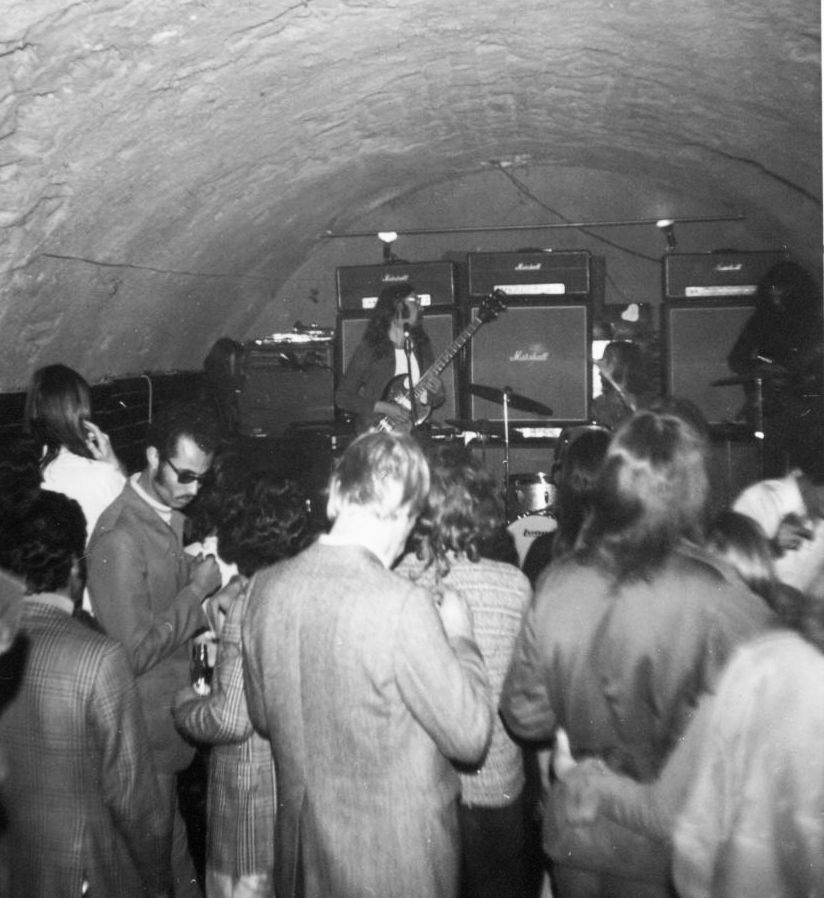
Did you do any bigger gigs when the album was out? Do you know how many copies were released?
We were supposed to go on tour after the album’s release. However, even before the album came out, my father passed away in a car accident. This traumatic event and the resulting existential fears led me to quickly complete my first bar exam and stop music entirely to focus on my studies. This put the band on hold. Bruno, Walter, and Uli could have continued without me, but for some reason, that didn’t happen. Thus, after the album was released, Night Sun didn’t play a single gig.
Only after my exam did I start a new and different musical and personal life. The shared apartment had since dissolved, and musically things started to improve.
How pleased was the band with the sound of the album? What, if anything, would you like to have been different from the finished product?
I was very pleased with the sound, and I believe the other musicians were too.
Did you ever experiment with any psychedelics, etc., as a band?
No.
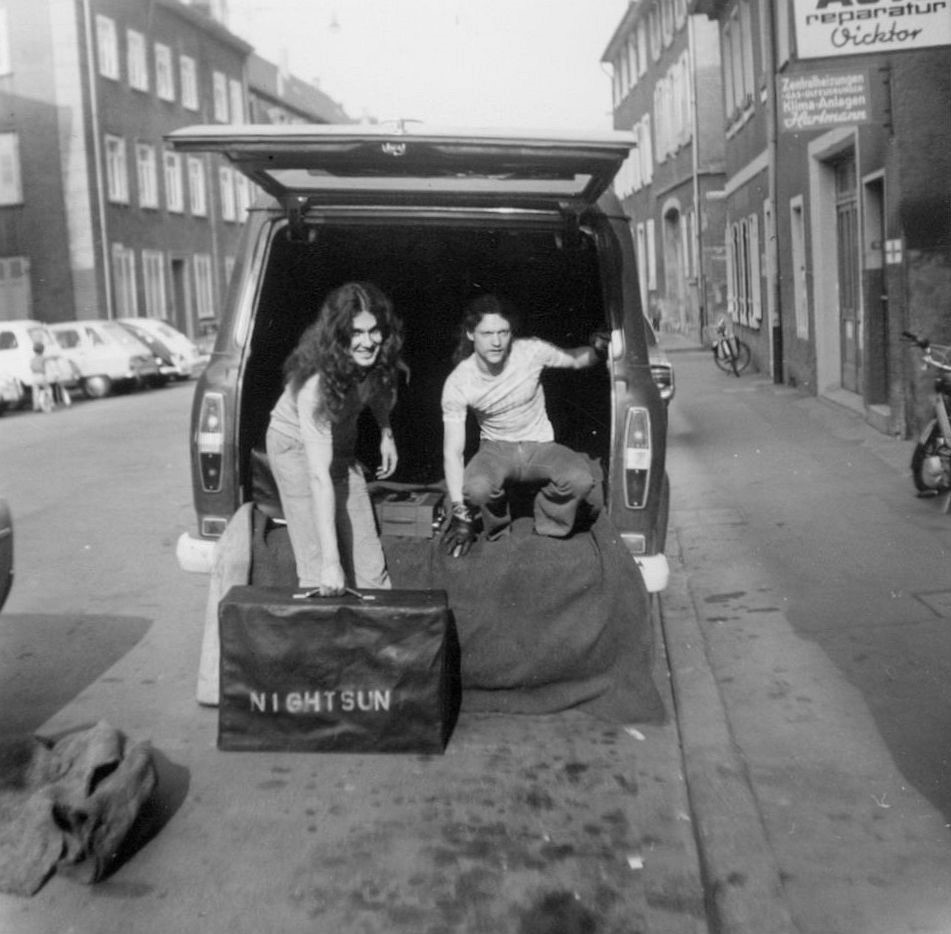
“All gigs were “crazy” because they were incredibly loud”
What would be the craziest gig that Night Sun ever did?
In a certain way, all gigs were “crazy” because they were incredibly loud.
You became much more involved in the jazz-rock scene. Tell us about your time with Chameleon and Brassy Brew.
I have very fond memories of the band Brassy Brew. Thomas Wind, Ringo Hirt, Bruno, and initially Joachim Rohmeis were a great group and well-known musicians. I still occasionally play with Thomas and Ringo. I practiced a lot, as did the other musicians, and the music progressed.
We played throughout southern Germany, always with success. The shared drives in the VW van were as enjoyable as the gigs themselves. Everything went smoothly, including festival performances abroad (with special moments at the Jazz Festival in San Sebastian).
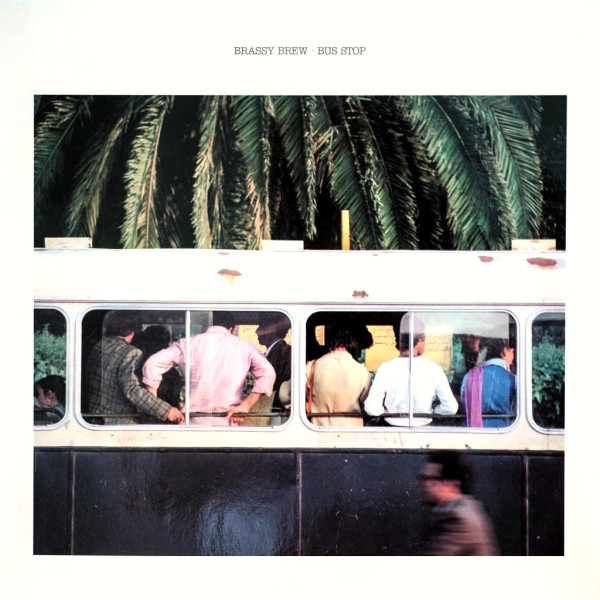
I don’t know if you can call Brassy Brew’s music jazz-rock; we just played and arranged a series of our own compositions.
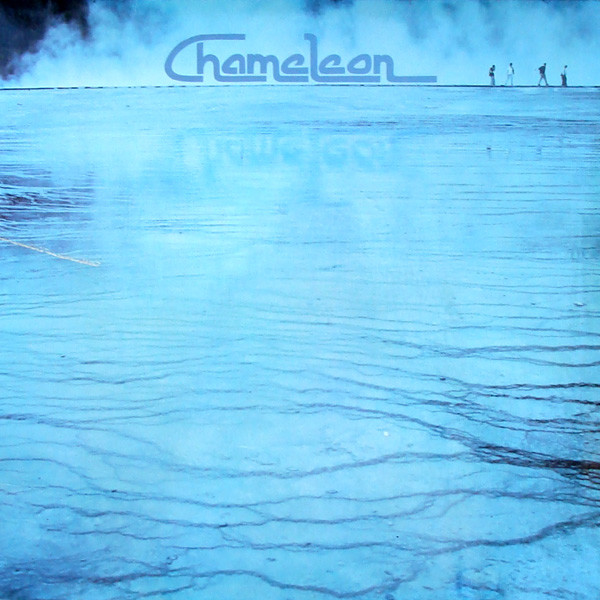
With Chameleon and other musicians, the music did indeed shift more toward jazz-rock.
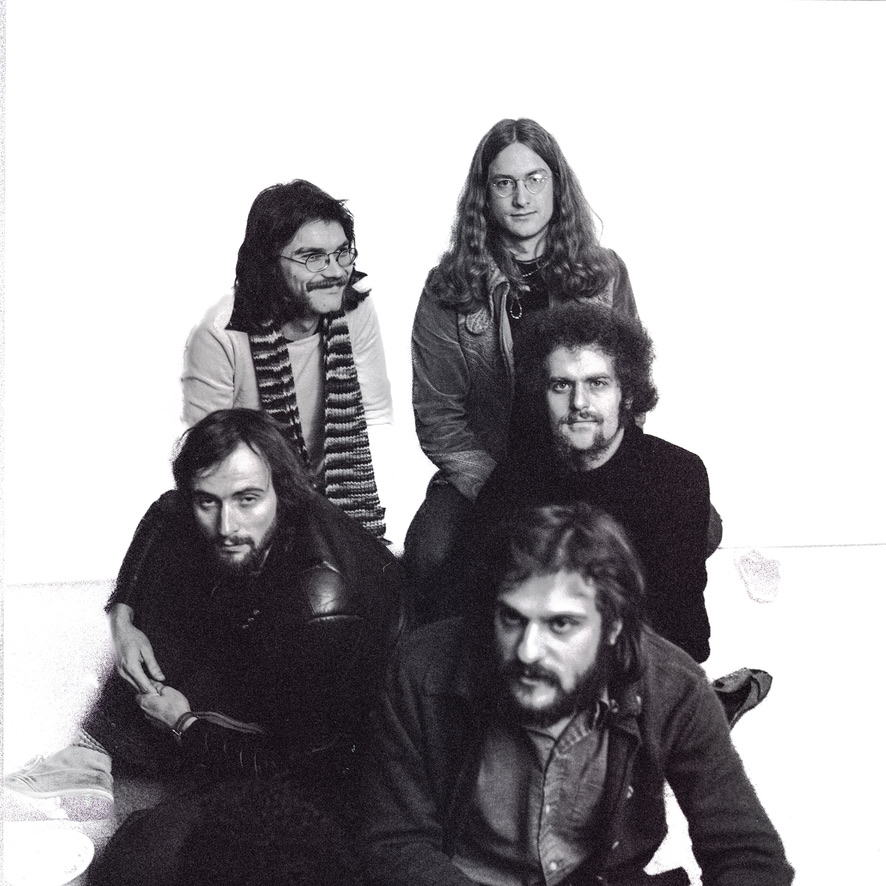
Are the Fuchs-Goos Band just a continuation of Chameleon?
With the Fuchs-Goos Band, which initially also performed under the name Chameleon, things went in a completely different direction. The band consisted of musicians (especially Werner Goos) with whom I still collaborate frequently. But I also stay in constant contact with Joachim Fuchs, the amazing drummer.
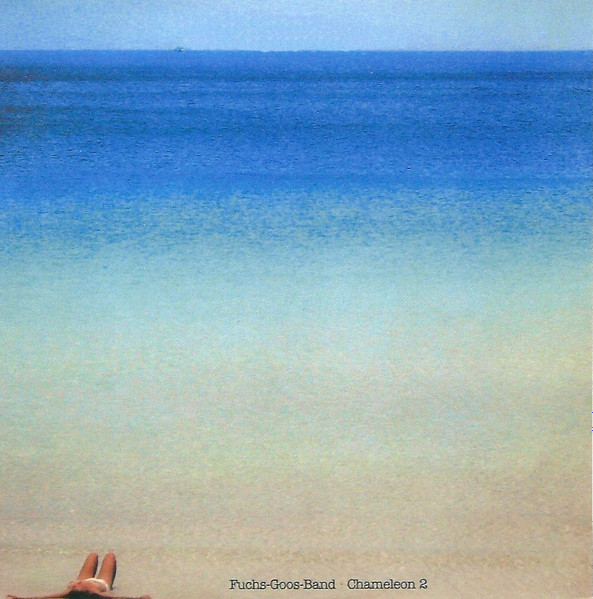
How did Orexis come about?
Georg Lawall’s band needed a flautist and saxophonist. I fit the bill. With this band, I had nearly weekly gigs for years. I also went on a major tour through Pakistan, India, Nepal, Bangladesh, Malaysia, Indonesia, the Philippines, etc.
With this band, we recorded several albums.
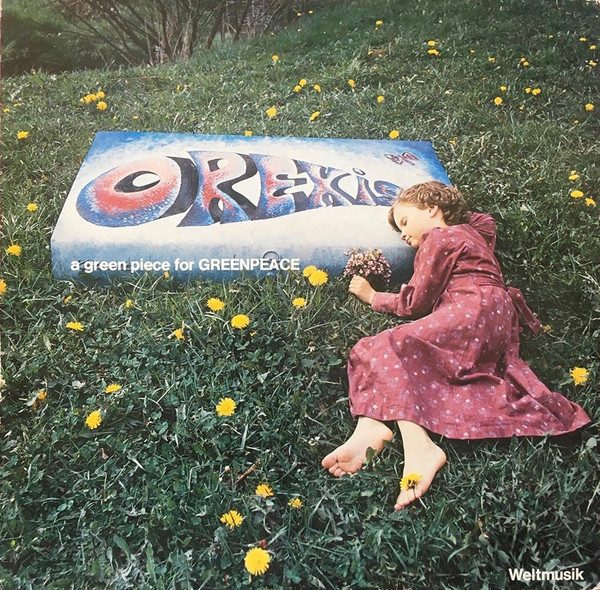
What about Infinity?
It emerged from the collaboration with Christoph Spendel, Thomas Heidepriem, and Stefan Traub. The star guest was Alphonse Mouzon, with whom I then had some unique experiences.
With Christoph Spendel and Werner Goos, we also recorded a trio album.
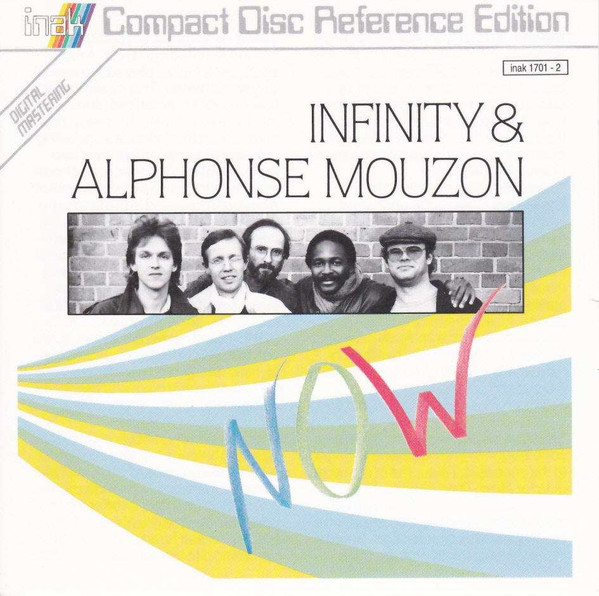
What about the collaborative album you did?
The album with the world-famous Joachim Kühn, Thomas Heideprim, and Janusz Stefański is quite special and very experimental. Joachim Kühn refused to use pre-composed material during the recordings, making it difficult to play within “forms.” This made the recordings even more interesting. After the release, I received a lot of praise from well-known radio editors.
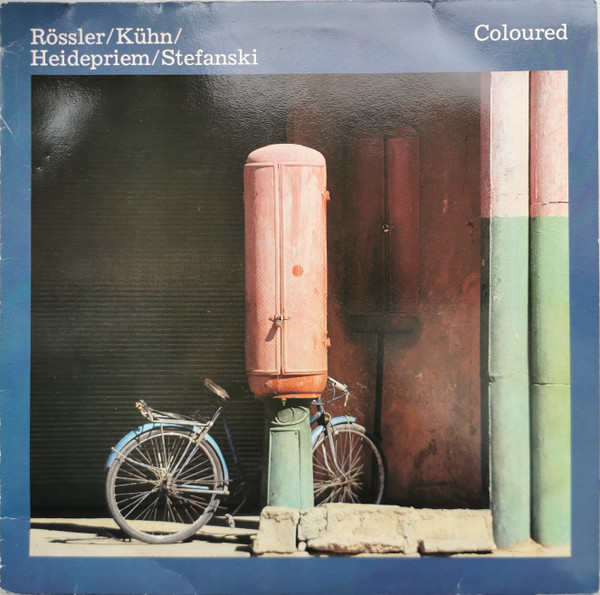
You released several fantastic collaborative albums including under the name of Between The Times with Johannes Vogt and Miroslav Vitous. What was it like working with them?
I was very fortunate to meet lutenist Johannes Vogt. Johannes is an exceptionally precise, knowledgeable, experienced, and socially competent player who is well-versed in early music. We’ve become good friends. Together, we recorded a total of 7 albums. The albums released by ACT received high praise from critics across Europe. On the first ACT CD, Miroslav Vitous played; in my opinion, he is the best double bassist in modern jazz. He was incredible because he not only accompanied but also brought entirely independent lines into the music. This CD was chosen by an English music magazine as the best CD of the year and sold quite well.
However, since Miroslav’s work with our recording at ACT posed significant and noticeable competition to his own albums at ECM (to ECM’s displeasure), unfortunately, there wasn’t a second album with him.
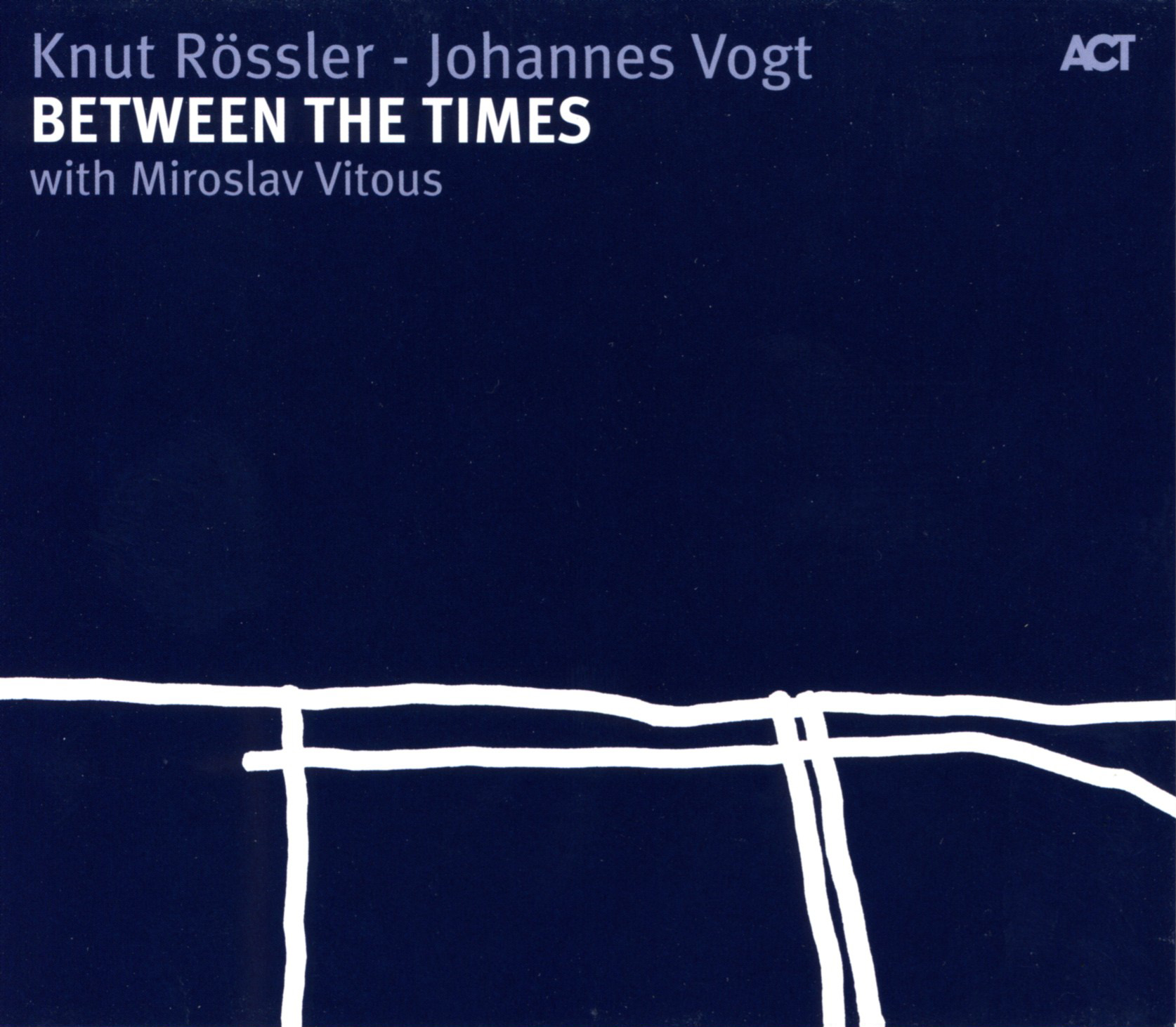
Since the founding of Between The Times, Johannes and I have played under this name with many different formations (organ, trumpet, vocals, violin, etc.) and varying degrees of classical music, especially in venues typically intended for classical concerts (such as churches). With Johannes, I don’t need much coordination despite the elements of classical music; time and space are the guiding principles, and the rest is listening to each other. It’s music where sound and melody matter, and where I always feel very relaxed.
What about Rössler / Goos Band?
As mentioned earlier, Werner Goos, also a good friend, has become a regular duo partner with whom I often play in expanded lineups. Werner’s anarchic style is a constant challenge that I enjoy. At the same time, he has outstanding skills as a sound engineer. I owe the good sound on my successful albums to him.
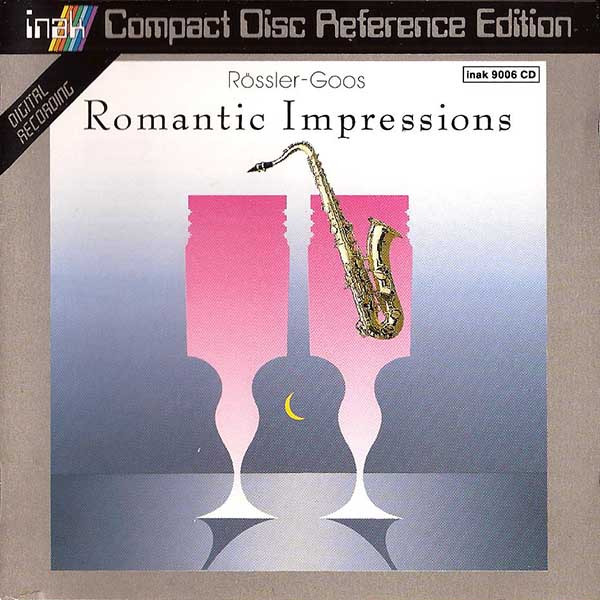
“Music is a life elixir”
Would you like to comment on your sax technique? Give us some insights on developing your technique.
Practicing the saxophone is a central part of my engagement with music. I practice two hours (or more) every day, which isn’t much, but it’s enough for me. After all, as a lawyer, I still have to work on time-consuming and challenging cases. The great saxophonists of jazz practice for over 8 hours a day and more. My goal is to create music where it’s not about how difficult or fast the saxophone is played but about playing it with a lot of sensitivity. This is no easy task.
I have a large number of practice books that offer suggestions. Along with scales and tonguing techniques, practicing is also about listening carefully and critically to your own playing.
The most important thing for me about practicing is this: Besides mandatory exercises, to which one shouldn’t devote too much time, it’s crucial to always do exercises that appeal to you tonally. I’m not interested in moving my fingers in any predetermined and possibly tricky sequence; instead, when I practice, I focus on making music that sounds good to me. I’m convinced that this approach is what has kept me engaged with music and practicing.
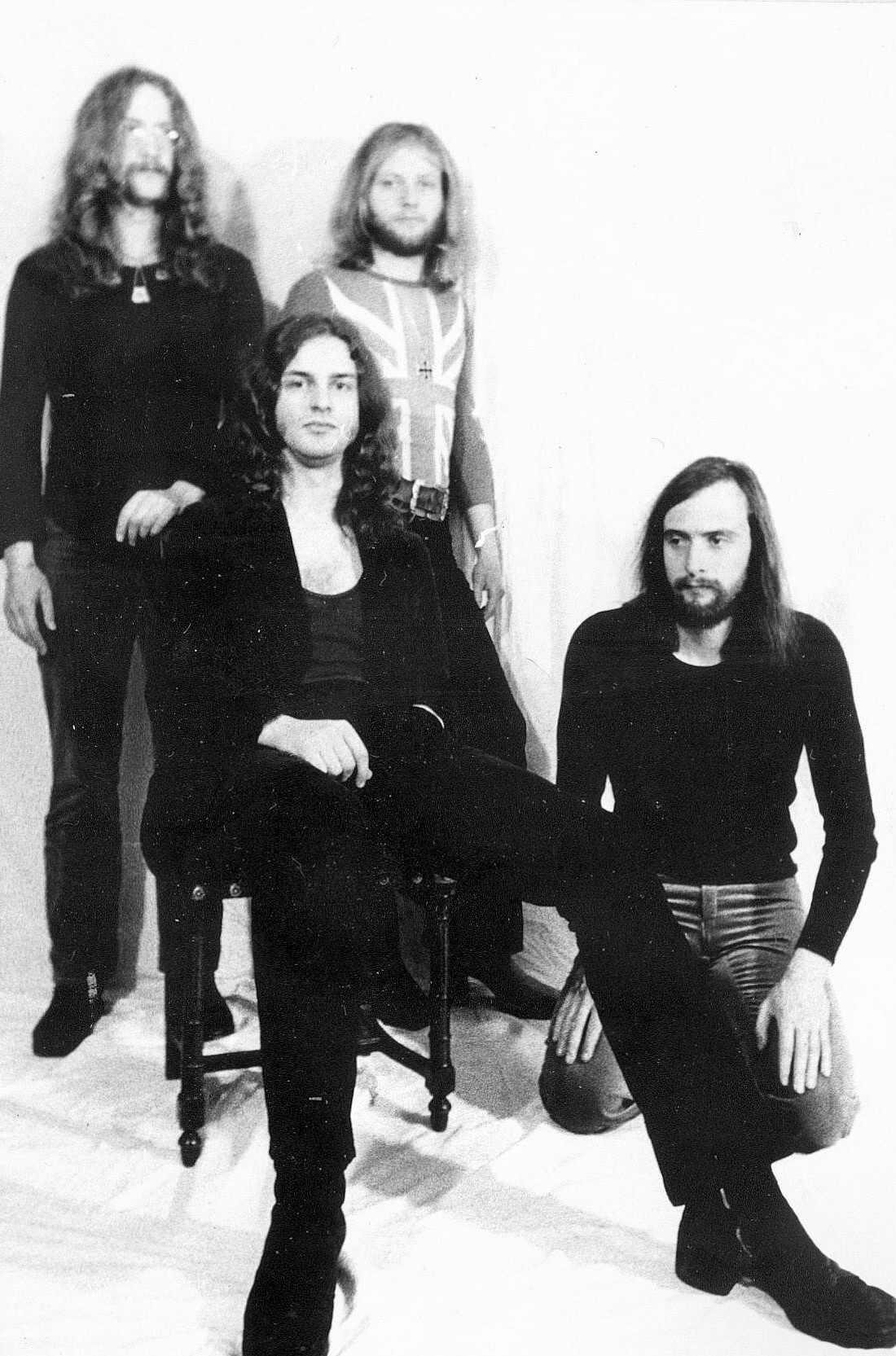
Looking back, what was the highlight of your time in the bands?
The albums mentioned above only reflect a portion of my musical activities. I led two jazz big bands for many years, and today I play first tenor saxophone in a very challenging big band. Additionally, I’ve had a jazz quintet, a trio, and two duos for decades.
Thus, there’s not one “highlight” in my musical life; instead, there are many highlights.
What currently occupies your life?
Talking with people, working with others (whether as a lawyer or a musician), happily living with my wife, and having a good relationship with my children.
What more could I wish for?
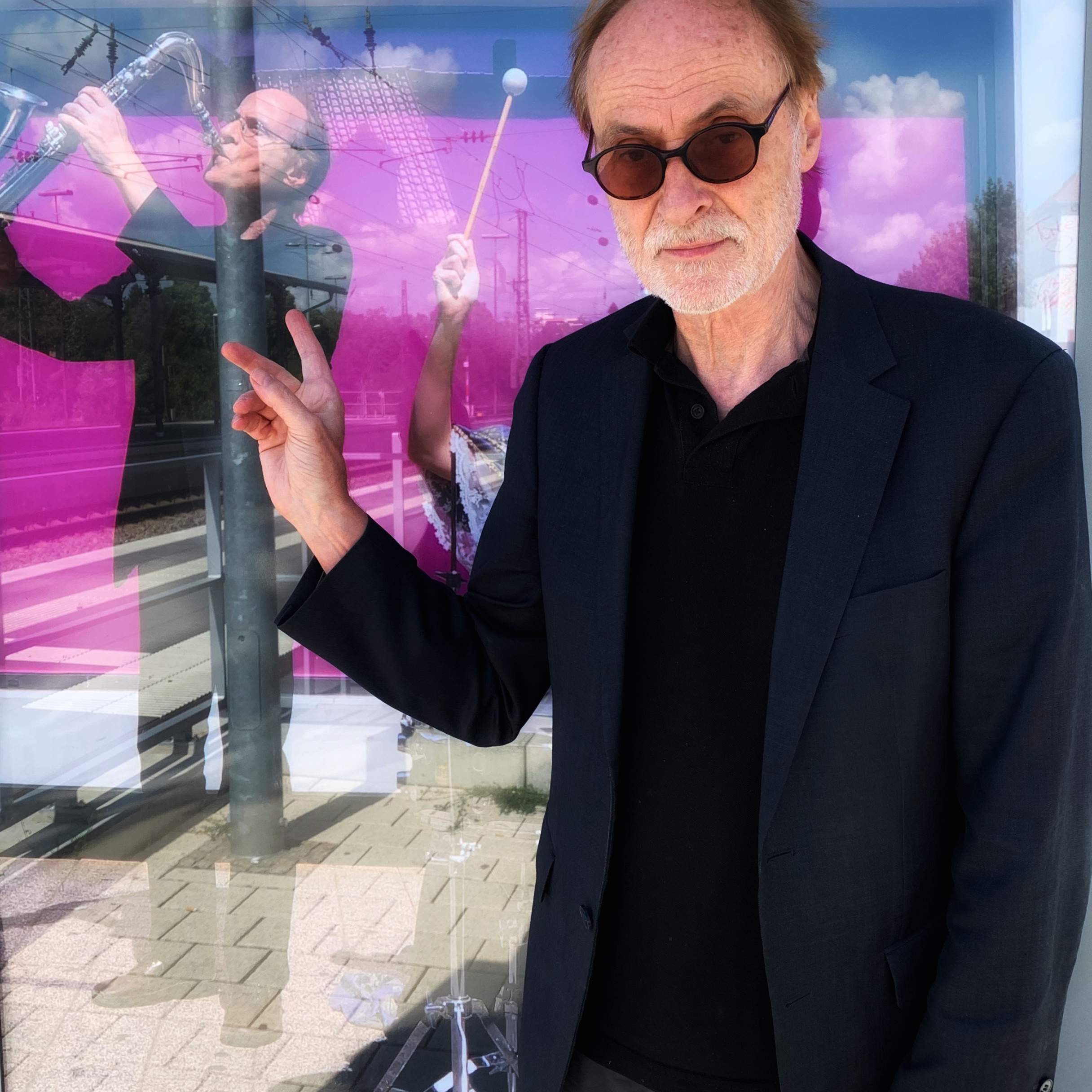
Thank you for taking the time. The last word is yours.
Those who live without music miss great opportunities and moments in their lives. Music is a life elixir.
However, I’m not sure if rock music can be the foundation for a fulfilling life as a musician.
Klemen Breznikar
Headline photo: Night Sun (1972)
Night Sun | Interview | “Got A Bone Of My Own”

